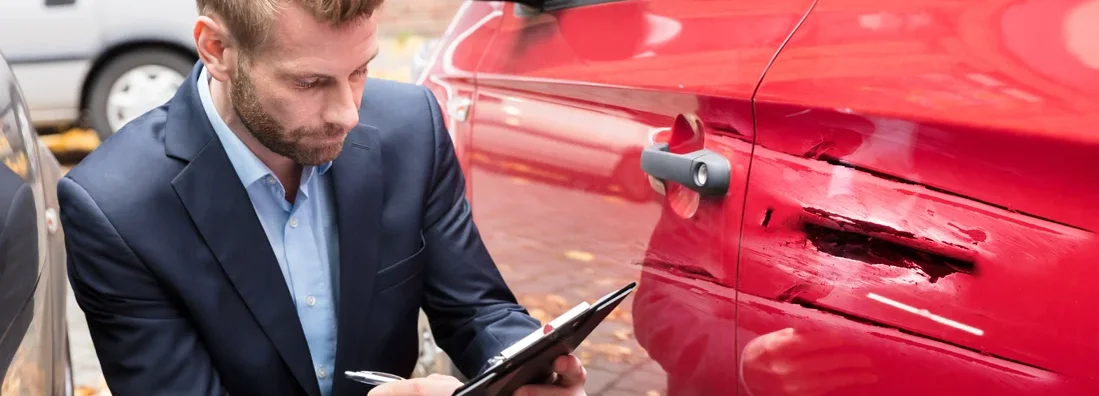What Is Full Coverage Car Insurance?

Jeff Green has held a variety of sales and management roles at life insurance companies, Wall street firms, and distribution organizations over his 40-year career. He was previously Finra 7,24,66 registered and held life insurance licenses in multiple states. He is a graduate of Stony Brook University.

You probably know that you’re required to have auto insurance before you hit the road, but how much coverage and which types do you actually need? There are a variety of options for coverages, limits, and deductibles. It can all feel overwhelming when you're trying to figure out which options best fit you.
Maybe you just need the minimum liability insurance required by your state. Or perhaps you want the peace of mind that comes with the extra protection of full coverage. We’ll look at full coverage insurance, the protection it offers, and how to get a personalized quote from an independent insurance agent.
What Does Full Coverage Car Insurance Cover?
The term “full coverage” shouldn’t be confused with “comprehensive coverage,” which is only one type of coverage. Full coverage insurance provides protection for you – not just the other driver. It includes liability, collision, and comprehensive, and covers damage from the weather, an at-fault accident, hitting an animal, vandalism, and vehicle theft.
A full-coverage policy will generally include:
| Type of Coverage | What it Covers | Is it Required? |
|---|---|---|
| Bodily injury liability | Covers medical costs from an accident you caused | Required |
| Property damage liability | Covers repair costs for property you damage in an accident | Generally required |
| Uninsured motorist bodily injury liability | Covers medical costs from an accident with an uninsured driver | Required in some states |
| Uninsured motorist property damage coverage | Covers repair costs from an accident with an uninsured driver | Required in some states |
| Collision coverage | Covers repair costs to your car if you collide with another vehicle or an object like a tree | Not legally required, but it may be required for a car loan or lease |
| Comprehensive coverage | Covers repair costs from damage not caused by a collision with another vehicle, including weather, hitting an animal, theft and vandalism | Not legally required, but it may be required for a car loan or lease |
Other types of available coverage could include:
- Loan/lease payoff coverage
- Gap insurance
- Forgiveness coverage
- Custom equipment coverage
- Rental car reimbursement
- Roadside assistance
- Windshield replacement
Most insurance companies offer policies with full coverage. An independent insurance agent can help guide you to the best policy so you can get the protection you need at a price you can afford.
How Much Does Full Coverage Car Insurance Cost?
Several factors determine how much you’ll pay for full coverage insurance, including:
- The type of vehicle you own
- How many miles you drive
- Where you live
- Your driving record
- Your age and sex
- Your credit history
The average annual cost for full coverage insurance ranges between $1,056 to $2,556, depending on the insurance company.
To get a better idea of what you’ll spend, you can estimate your costs with the Trusted Choice car insurance calculator. Our nationwide network of local independent agents is ready to help you find the right auto insurance coverage at the best rate.
Can I Purchase Parts of a Full Coverage Car Insurance Policy?
Purchasing auto insurance doesn’t have to be an all-or-nothing proposition. You can select the specific coverages you need and the deductible amounts that work best for your budget.
Let’s look at a few scenarios:
- You want more protection than the state minimum liability insurance, but your car is older, and the value has depreciated significantly. In this case, you could opt for comprehensive insurance but not collision insurance.
- You’ve paid off your car and your lender no longer requires “full coverage” insurance. If you can afford the out-of-pocket costs to repair or replace your vehicle, you might consider dropping comprehensive and collision coverage from your policy.
- You can also set your deductibles – the amount you’ll pay before insurance coverage kicks in – higher. Doing this can help you save money without sacrificing the protection of comprehensive and collision coverage.
Why Should You Get Full Coverage Insurance?
Let’s look at a few situations where choosing full coverage insurance makes sense.
- If the car is leased or financed: Lenders will generally require you to have full coverage – including collision and comprehensive insurance – if you finance or lease a vehicle.
- If your car is paid off: Even if you own your car free and clear, it may make sense to have full coverage if you can’t afford to replace your vehicle after an accident, regardless of the vehicle’s age.
- If you regularly commute in heavy traffic: A daily commute can put a lot of wear and tear on your vehicle.
- If you want greater peace of mind: Getting the maximum protection of full coverage insurance can help you hit the road with confidence.
Whatever your coverage needs may be, talk to an independent insurance agent who can give you a personalized quote and guide you through the insurance process.
https://www.usnews.com/insurance/auto/everything-you-should-know-about-car-insurance
https://www.usnews.com/insurance/auto/how-much-car-insurance-do-i-need
https://www.iii.org/article/how-to-find-the-right-auto-insurance
https://www.iii.org/article/infographic-what-determines-the-cost-of-my-auto-insurance
https://www.usnews.com/insurance/auto/average-cost-of-car-insurance#high-coverage
https://www.usnews.com/insurance/auto/everything-you-should-know-about-car-insurance
